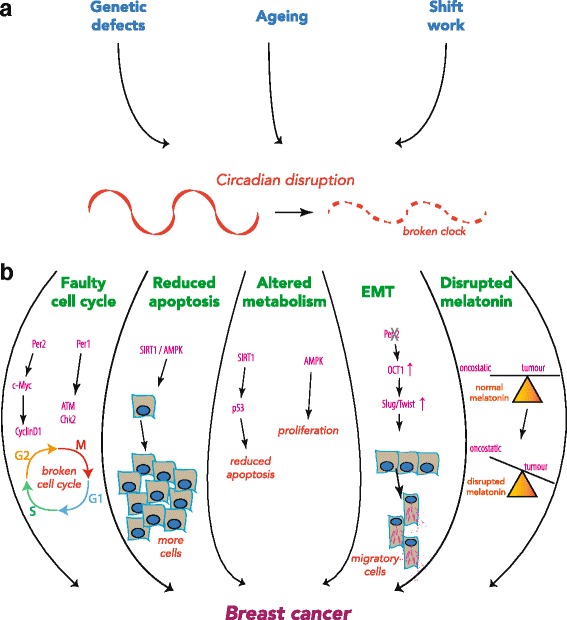Fig. 2.

Circadian disruption can drive breast cancer. a Intrinsic factors such as genetic defects or ageing, and extrinsic factors such as irregular shift work, can severely disrupt the body’s internal timing system. b In turn these factors, either singularly or collectively, link a faulty circadian clock to an increased risk of breast cancer. A faulty clock can directly disrupt the gating of the cell cycle and reduce apoptosis, These effects can also be brought on indirectly through altered metabolism in response to a broken circadian clock. They can also lead to elevated EMT, driving the formation of lethal metastases. A further mechanism that can link to breast cancer is arrhythmic production of melatonin, tipping the balance towards tumorigenesis. EMT epithelial–mesenchymal transition
